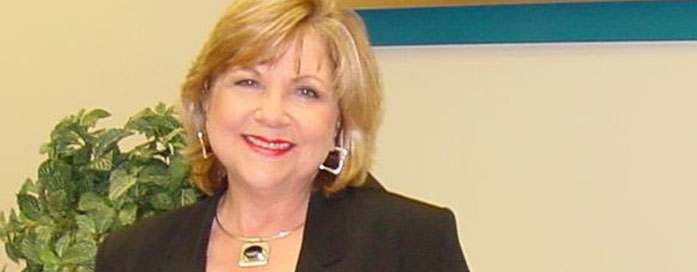OUTLET: Triangle Business Journal
Judy Fourie, a recently-retired Towne Insurance of Raleigh executive, is poised to reinvent herself in the insurance industry.
In what she calls her senior years, she’s heading out with her own practice for the second time in her career. She’s founded Fourie Group, a private consulting agency with a focus one Medicare Supplement plans, Prescription Drug plans, Life Insurance plans and Long Term Care insurance.
Fourie, who lives in Apex, spent more than 35 years in the insurance industry. She also served as President of Civitan and the National Association of Women Business Owners twice. In 2007 and 2008, she was Chair of the Red Cross Ball, the Red Cross Triangle Area Chapter’s largest annual fundraiser. In 2003, she received the Triangle Business Journal’s Women in Business award.
After working for an insurance company for several years, she started her own practice in 1987. A few years later, the company was sold to a company in Greenville, North Carolina, which sold it only seven months later to Towne Insurance. Towne was headquartered in Virginia Beach at the time. Two years later, it consolidated its offices to Raleigh.
In this Q&A, Fourie shares her experience starting out in an industry foreign to women, and why she doesn’t plan to retire anytime soon.
Q: How did you begin working in insurance?
A: I’ve worked since I was 9, in tobacco, and as a cashier at Winn-Dixie. I’ve always had an entrepreneurial spirit, I guess. I was the best performer at Winn-Dixie. The employment agency said they had the perfect job for me. I didn’t really want to work in insurance, but I liked the two gentlemen I interviewed with. I did administrative work and when my children weren’t babies anymore, I started to read again. I decided I wanted to be in sales and not support, so I took classes and got my license.
Q: What was it like as a woman in that industry at the time?
A: There were maybe three other women in our group of 200. There were not many women in the industry. It’s dominated by men. That’s true for most industries. And it’s not like you can’t succeed, it’s just harder.
Q: How did your involvement with the National Association of Women Business Owners shape your career?
A: At the time, if you were a woman working for yourself and you went out on your own, you were isolated. Even your family, once you go out on your own, you don’t have anyone to talk to because no one understands you. These were entrepreneurs, not multimillion-dollar businesses. They were starting from the ground up. I went to the national meetings, and I got to meet a lot of famous women, so to speak, that had important jobs. For instance, I met a White House correspondent, and a TV commentator woman. Back then there weren’t as many. Seeing those types of women was very encouraging.
Q: Going out into your own practice for the second time, what will you do differently?
A: This time, I will have more confidence, that’s number one. I know more about how to run a business. I’ll manage my resources better. What I see is, there’s plenty of people who work till they retire. I feel good and I’m still healthy. I certainly don’t feel my age.
Q: Where do you see yourself in five years?
A: I see myself continuing to do what I’m doing. I’m kind of in a reinvention stage in my career. I’m not ready to retire. I may continue to narrow my focus down. My goal is to bring more people into my organization. I’ve always liked a small team because you can be more nimble. I may not add more than five at the most, and that may be a pipe dream. I don’t want the load that I had in the past. It’s crushing.

